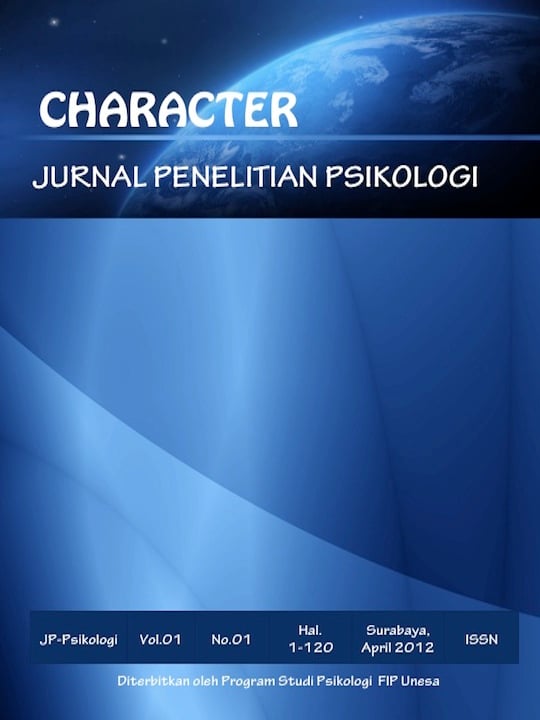KESEJAHTERAAN PSIKOLOGIS LANSIA TERLANTAR BERJENIS KELAMIN LAKI-LAKI: SEBUAH STUDI FENOMENOLOGI
DOI:
https://doi.org/10.26740/cjpp.v9i1.44865Abstract
Abstrak
Keterlantaran lansia dapat menyebabkan berbagai permasalahan, baik persoalan sosial maupun persoalan psikis bagi yang mengalaminya. Salah satu langkah yang ditempuh untuk mengatasi persoalan ini adalah dengan menampung para lansia terlantar tersebut di penampungan sosial. Tujuan dari penelitian ini untuk mengetahui kesejahteraan psikologis lansia yang tinggal di Lingkungan Pondok Sosial (Liponsos) Kabupaten Sidoarjo. Penelitian ini menggunakan metode penelitian kualitatif dengan pendekatan fenomenologi. Subjek penelitian ini adalah 5 lansia lak-laki terlantar. Pengumpulan data dilakukan melalui wawancara semi terstruktur. Hasil penelitian ini menunjukkan bahwa lansia terlantar memiliki kesejahteraan psikologis yang mereka peroleh melalui berbagai kegiatan yang mereka ikuti di Liponsos. Melalui kegiatan tersebut, para lansia terlantar dapat menghilangkan rasa bosan, kesepian, kejenuhan dan pikiran negatif yang ada di dalam diri.
Kata Kunci: kesejahteraan subjektif, lansia terlantar, Liponsos
Abstract
Neglection of the elderly lead to social and psychological problems. One of the way to deal with these problems is to put the neglected elderly to a shelter. This research explores the psychological wellbeing of the elderly who live in Lingkungan Pondok Sosial (Liponsos) Sidoarjo. It uses a qualitative research method with a phenomenological approach. The subject of this study are 5 neglected male elderly. It employs semi-structured interview to collect data. The study reveals that neglected elderlies experience psychological well-being which they obtain from participation in various acitivies in Liponsos. These activities enable them to get rid of boredom, loneliness, and negative thoughts.
Keywords: psychological well being, abandoned elderly, Liponsos
Downloads
Published
How to Cite
Issue
Section
License
Authors who publish in this journal agree to the following terms:
Copyright in any article is held by the author.
The author grants the journal, publication rights with the work simultaneously licensed under a Creative Commons Attribution License that allows others to share the work with an acknowledgment of the work's authorship and initial publication in this journal.
Authors may enter into separate, additional contractual arrangements for the non-exclusive distribution of the journal's published version of the work (e.g., posting it to an institutional repository or publishing it in a book), with an acknowledgment of its initial publication in this journal.
Authors are permitted and encouraged to post their work online (e.g., in an institutional repository or on their website) prior to and during the submission process, as this can lead to productive exchanges, as well as earlier and greater citation of published work.
 Abstract views: 323
Abstract views: 323





